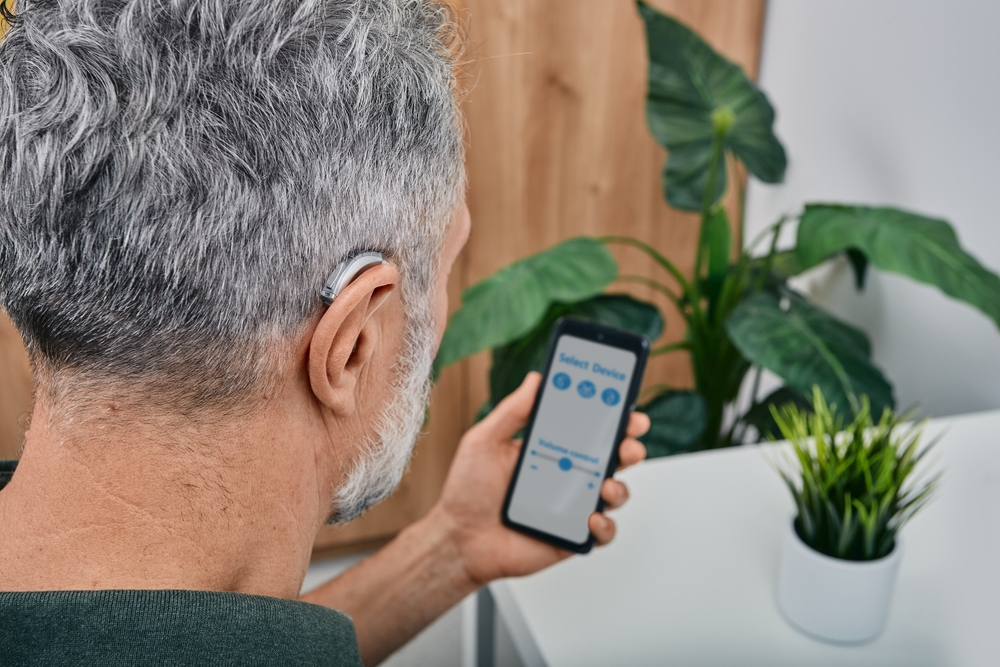
Even mild hearing loss can substantially impact daily life, influencing relationships with friends, family, and colleagues, as well as complicating routine activities like grocery shopping. However, the introduction of well-calibrated hearing aids can result in transformative changes.
Top ten reasons to invest in hearing aids
While the chief benefit of hearing aids is obvious, improved hearing, their effect goes far beyond mere auditory enhancement. Let’s explore the comprehensive benefits that wearing hearing aids can provide.
Improved relationships and communication
Clear communication is the cornerstone of healthy relationships. Relationships can be strained when hearing loss leads to missed communication. Hearing aids enable you to participate fully in conversations, improving your ability to connect with others and decreasing feelings of isolation or disappointment.
Being more independent
Untreated hearing loss leads to barriers in communication causing activities like buying groceries to become difficult. Your ability to understand speech and hear in a variety of environments will be empowered by hearing aids, allowing you to navigate these situations more independently. Having a greater sense of independence will help you do things that require enhanced situational awareness such as driving, for example.
Possibility of earning more
In professional situations, successful communication is crucial. Your job performance and career development can be diminished by untreated hearing loss which can impact how you participate in meetings and other work-associated gatherings. You can boost your productivity, which can, in turn, result in career opportunities, by using hearing aids to stay more alert and engaged.
Reduced tinnitus symptoms
Hearing loss is commonly accompanied by tinnitus symptoms or ringing in the ears. Hearing aids can provide relief from tinnitus for some individuals by masking symptoms.
Mitigated cognitive decline
Some research has uncovered a connection between neglected hearing loss and mental decline, including dementia. By managing hearing loss with hearing aids, you could decrease the risk of cognitive impairment and maintain better overall brain health.
The ability to take pleasure in music
Hearing loss can distort the perception of music, making it less enjoyable. The depth and richness of musical sounds can be restored by hearing aids which fill in the frequency gaps so you can enjoy your favorite songs once more.
Boosted confidence
Whether you’re in a social or professional situation, being able to hear better will give you greater confidence. Your general quality of life will be improved and you will feel more capable when you can communicate better.
Having more energy
Neglected hearing loss pushes the brain to work extremely hard to fill in missing sound which can be mentally exhausting. With hearing aids, you won’t feel so fatigued and will be able to participate in all of those activities that you enjoy.
Awareness and safety can be enhanced
Whether you’re driving a vehicle or crossing the street, being aware of your surroundings is a vital part of safety. Hearing aids restore environmental sounds, including approaching vehicles or alarms, ensuring that you can respond properly and safely.
Setting an example that is positive
You will set a positive example for other people going through hearing loss by embracing hearing aids and displaying an approach to health and well-being that is positive. It exhibits a commitment to personal growth and improvement, inspiring people around you.
Schedule a hearing test today
Hearing aids are primarily created to help you hear better, but numerous other facets of your life can be significantly affected as well. Whether it’s nurturing stronger relationships, maximizing independence, or protecting cognitive health, the choice to use hearing aids is a step towards a more rewarding and engaged life.
Take the first step towards better hearing today by scheduling a hearing assessment with us.